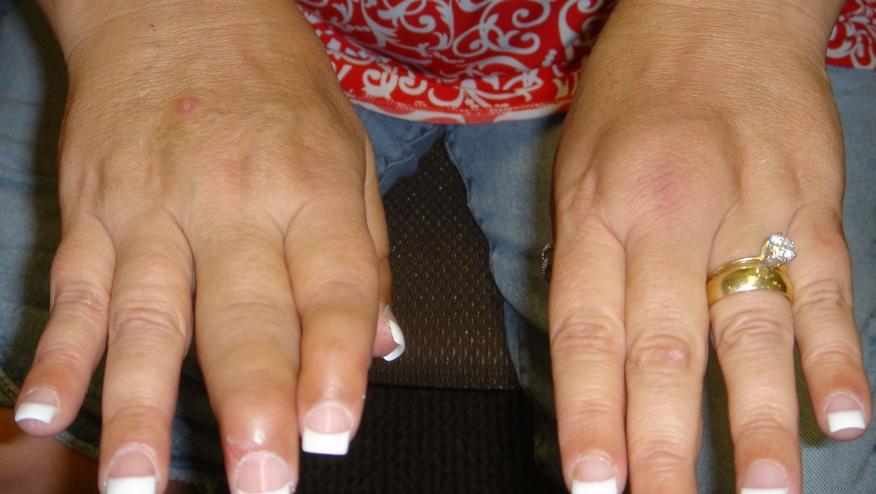ICYMI: Evaluation of Bimekizumab in PsA Save

At last year’s ACR, I shared about the early clinical trial data on bimekizumab in psoriatic arthritis. Bimekizumab (BKZ), a monoclonal IgG1 antibody that selectively inhibits interleukin (IL)‑17A and F. There have been more updates on the 2 year data on BKZ at #ACR24, and this is a summary of the studies.
In Abstract 0602, BKZ demonstrated sustained improvement across GRAPPA domains, including peripheral arthritis, axial disease, enthesitis, and dactylitis, up to two years. Patients maintained low rates of uveitis and inflammatory bowel disease. Both bDMARD-naïve and TNFi-IR patients showed consistent efficacy and safety profiles, showing long-term effectiveness in managing PsA. Abstract #0591 showed that BKZ maintained efficacy responses for two years in PsA patients. At Week 16, 79% of bDMARD-naïve and 76% of TNFi-IR patients achieving ACR50 maintained their response at Week 104. Skin improvement was notable, with 70-80% maintaining PASI100. The safety profile was consistent with previous studies.
Abstract 0594 was a real-world study on PsA patients previously treated with other IL-17 inhibitors showed 96.8% achieved Investigator Global Assessment, IGA 0/1, and 62.8% achieved PASI100 at Week 16. This study highlights BKZ’s effectiveness, even for patients with prior IL-17 inhibitor non-responses, with a favourable safety profile. In Abstract #1473, results from two Phase 3 studies were analysed. Patient-reported outcomes improved with stringent control of swollen joint counts (SJC). Complete resolution (SJC=0) was linked to better pain and fatigue reduction, sustained up to two years.
In Abstract 2348, 83.2% of patients with plaque psoriasis maintained PASI90 and 58.5% maintained PASI100 over four years. With longer time points in the psoriasis studies, this shows longer-term efficacy and favourable safety profile for skin manifestations.
Finally, Abstract 2368 showed sustained improvements in patient-reported pain and fatigue in BKZ treated patients observed up to two years. Around 50% of patients achieved ≥50% improvement in Pain VAS, emphasising its role in improving quality of life for PsA patients.
Across these studies, BKZ showed durable efficacy in both joint and skin domains of PsA, with benefits sustained up to four years in some cases. There were significant improvements in the patient-reported outcomes, including pain and fatigue. The safety profile was consistent with data from previous studies. These studies provide us with useful information on the use of BKZ in managing patients with PsA.










If you are a health practitioner, you may Login/Register to comment.
Due to the nature of these comment forums, only health practitioners are allowed to comment at this time.